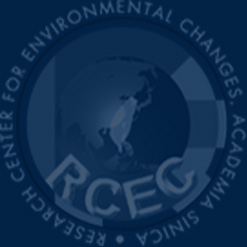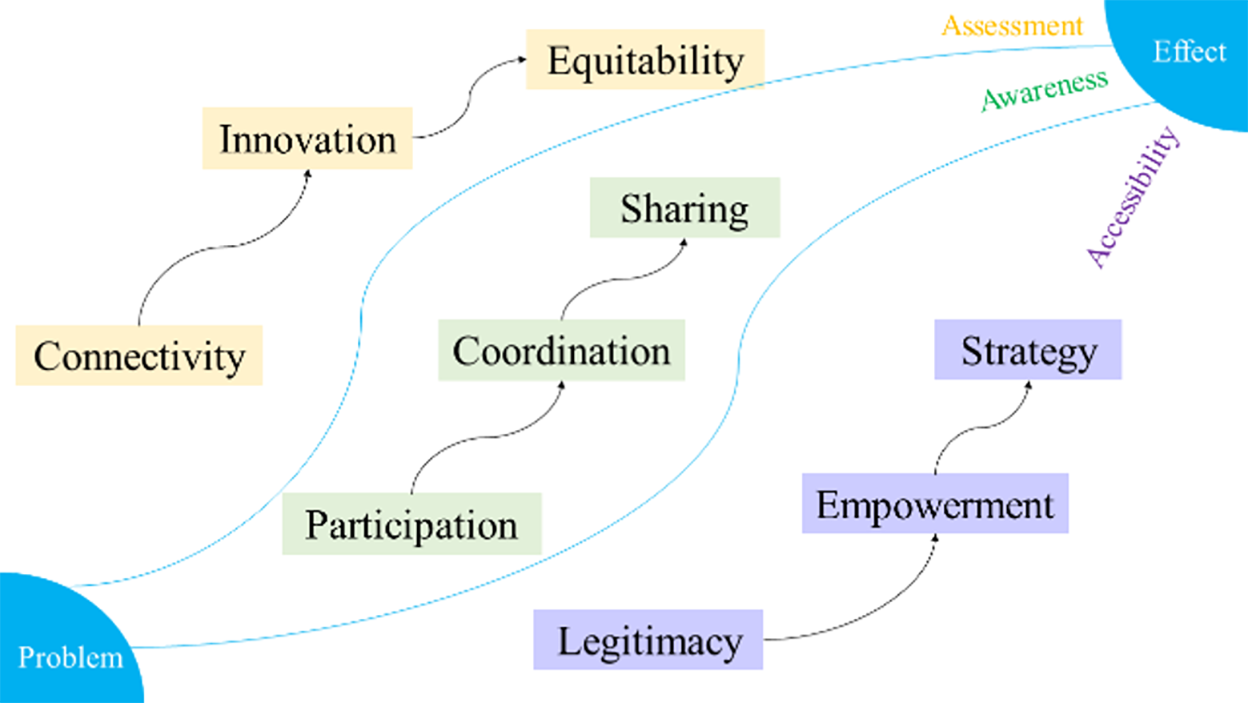


Overview of the nine Principles of food-energy-water nexus governance.
The food-energy-water nexus is a relatively new emerging field that strives to work at the urban and rural level for integrated governance of resources. The field has received widespread interest over the past decade due to its ability to harness a triple-win situation by simultaneously meeting sustainable natural resource governance goals. Most attention has been directed at achieving cross-sectoral benefits that could be addressed with nexus components through an interdisciplinary approach. This research brings together these relatively isolated debates under the common heading of nexus governance. Three special focuses on assessment, awareness, and accessibility are developed. The assessment describes nexus governance that enhances integrated assessment in the cross-scale and cross-sectoral coherence. The awareness addresses nexus governance that seeks to co-design and co-deliver the solutions to stakeholders. The accessibility reveals nexus governance works as a cohesive system of principles. The framework of food-energy-water nexus governance is based on a cohesive set of nine principles, including: connectivity, innovation, equitability, participation, coordination, sharing, legitimacy, empowerment, and strategy. The nine principals are analyzed with respect to their usefulness in nexus governance, taking sample cases in Taiwan as examples. The results show that effective nexus governance requires a combination of integration options.
Main Outcomes
Nexus governance has long been perceived as an interdisciplinary science and the public often associates the governance with a political domain. A living lab co-creation environment provides a conceptual framework and testing bed in combination with real-world testing and creation of innovative technology. Moving towards nexus-based governance, researchers in Taiwan have applied a living lab for the design of a landfill site restoration project since 2018. This project is based on the insight of Lehmann and Society who applied an innovative design and collaboration process – an urban living lab approach - to address local food-energy-water production and delivery issues in Southeast-Asia. The goal of the project is to understand the synergies and trade-offs between water, food, and energy in an effort to construct the site on a best options basis and inform future landfill design and governance practices. The living lab case is based on the integration of nine principles as one cohesive set.
In the phase of assessment, background and key details and the problems structure of the project were provided. Some of the performances are evaluated with a quantitative scale (e.g. cost-benefit analysis through a questionnaire survey and environmental footprint evaluation through life cycle analysis) and others with a qualitative scale (e.g. expert judgment about ecosystem services). The innovative technologies proposed by the scientists contributed actively to the design and alternatives, based on the results of connectivity evaluation. Broader contributions for the water-energy-food nexus are actually integrated into the core design. These include a series of functions, i.e., reduction of water volume flooding downstream from a rain event, pollutant removal, electricity generation, edible plant cultivation, numbers and frequency of visitors and users, and landscape diversity. By September 2020, the project had worked with stakeholders and four interventions had been delivered, including a permeable pavement system, a plant microbial fuel cell system, a bio-filtration basin, and a rain garden. To achieve the integration of power and inequalities, a 3-year partnership was established to facilitate ongoing interventions with balanced stakeholder participation in the decision-making process.
In the phase of awareness, interventions were exam and implemented. Three main groups of stakeholders associated with the resources in disenfranchised communities in the preliminary phase were involved in the project through workshops. The stakeholders included management institutions (local government and management authorities), scientific and technical experts (university professors and consultants), and local actors and NGOs (citizens’ associations and local experts). The main innovative technologies of the solutions were planned by the scientists and shared by the rest of stakeholders since the beginning of the workshops. The alternatives (e.g., doing nothing) were suggested and considered while technical descriptions were modified and accepted by the stakeholders after the network meeting under the case study context. In this context, experimentation of interventions stresses the need for local understanding and enables the local partners to consider more holistic knowledge and practices at this demonstration stage.
In the phase of accessibility, an engagement process and knowledge sharing interface were established. The earlier designs and constructions revealed positive impacts on flood mitigation and environmental benefits. To make these actual interventions and efforts visible, this project built up education and a knowledge base that can be used in the local community. The project situates case study place-making as an approach to water-food-energy nexus governance by drawing implications for urban environmental policy and resource planning. A series of demonstrations including selecting related actions, identifying authority, illustrating pathways, designing implementation processes, communicating co-benefits, building capacity, and transferring technology and knowledge for nexus governance were given from a legal and regulatory perspective.
Key points
More information